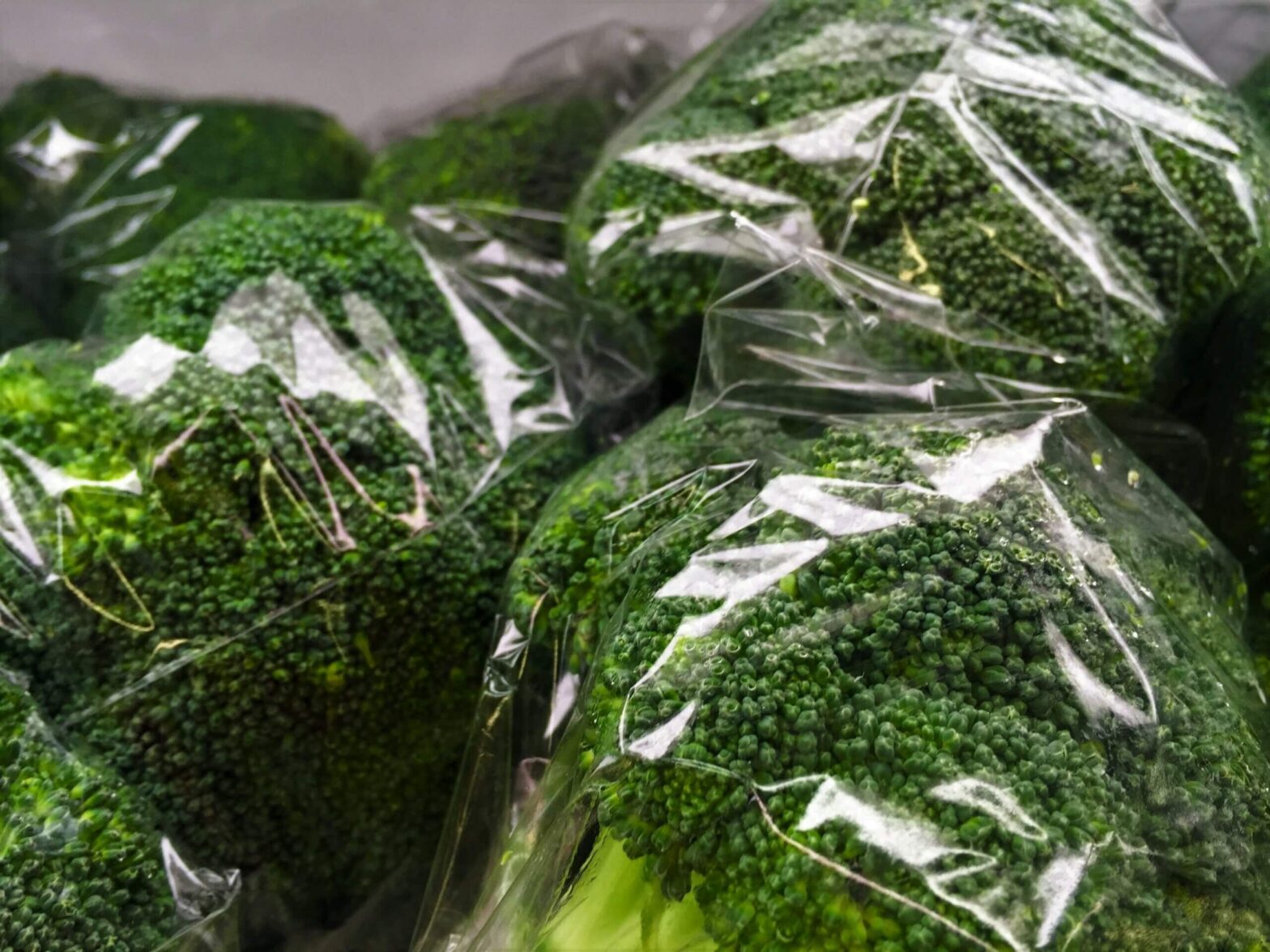«Strip us!»: Freeing fruit and vegetables from plastic
People who buy organic fruit and vegetables wish to do something good for themselves and for the environment. Unfortunately, this is contradicted by the fact that the products are often wrapped in plastic. OceanCare is calling upon supermarkets to change this.
Compared to EU member states, Switzerland’s waste footprint is significant, ranking in the top tier, generating an above-average amount of waste, including mountains of single-use plastic packaging material. Even organic fruit and vegetables are packed excessively in plastic. Why is that, since most fruit and vegetables are naturally protected by their peel or are washed before consumption.
Flimsy arguments
Wholesalers argue that they have to clearly label organic products and therefore they have to use plastic packaging. For most fruit and vegetables, however, there are more sustainable ways: for example, laser tattooing. In this process, pigments in the form of a label are removed from the skin with a beam of light. The product remains intact and – unlike plastic packaging, where toxins can migrate into the food – it also remains free of pollutants.
The shelf life of the product and food-waste argument is also referred to when arguing in favour of plastic packaging, but this is interpreted in different ways: Migros, for example, considers it necessary to shrink-wrap individual cucumbers in plastic, while Coop simply puts a sticker on them.
OceanCare advocates for «unpackaged» organic fruit and vegetables as an exemplary solution. An example from New Zealand shows that this can also pay off for wholesalers: supermarkets that consistently offered fruit and vegetables without packing tripled their sales. Customers could not send a clearer signal.
Swiss supermarkets under scrutiny
In 2018, OceanCare conducted a research into how organic fruit and vegetables are packaged in the Swiss branches of Aldi, Coop, Lidl, Migros, Landi, Denner and Reformhaus Müller. The results were sobering: Aldi and Lidl revealed a rate of 100% plastic packaging. Coop reported 98.3% and Migros 96.2%. The health food store Müller scored the best result with 16.1%. Denner and Landi did not offer any fruit or vegetables in organic quality.
Parallel to the research, OceanCare approached the supermarkets directly. In addition, more than 20,000 consumers supported our campaign by signing the petition «Strip us!».
The sustainability managers of Coop, Migros, Lidl and Aldi were all open for dialogue. Coop asked for detailed information on customer wishes and subsequently announced its intention to continue eliminating plastic packaging for organic fruit and vegetables. The company invited OceanCare to a stakeholder seminar with the intention to reduce plastic packaging further. Lidl and Aldi promised to use up to 25% less plastic packaging for their own brands and switch to recyclable materials; in 2019, Aldi decided to test laser tattooing in Switzerland. Only Migros did not disclose any plans at the time.
In February 2019, OceanCare compared the offerings of the major retailers with that of the previous year. Lidl led the reduction of disposable plastic by 8.7%, followed by Aldi with 8% and Coop with 7.7%. Migros was far behind with 0.2%.
This was a positive development, but progress was to slow. Therefore, in an open letter, OceanCare urged the major distributors –in line with the interest of their customers – to take more ambitious steps.
Plastic-free: we all have a choice
OceanCare continues to talk to the wholesalers, but consumers do not have to wait around idly until these companies act accordingly.
We all decide where and in what form we buy our fruit and vegetables. Weekly markets, for example, offer a wide range of unpackaged and local products. Organic food shops also offer fresh and all natural products. There is nothing to prevent us from setting a good example for the large-scale distributors.
